24 Woodwork Centric Poems Of Spring
Introduction.
This collection transforms the humble woodworking shed into a cathedral of human experience. Here, sawdust drifts like snow, timber grain reveals life’s deeper patterns, and the ancient dialogue between hand and wood continues to teach patience, precision, and the quiet joy of making something that lasts.
Woodworking emerges as demanding mentor. Waddy wood humbles the overconfident, midnight deadlines expose the cost of haste, sharp tools reward only those who listen. In this classroom, timber serves as both curriculum and examiner, testing character alongside skill.
These poems honor wisdom found in workshop disasters. Jim’s collapsing chair becomes minimalist sculpture, Pete’s towering bench transforms into community landmark, Ray’s sinking boat creates underwater sanctuary. Mistakes, approached with humor and humility, reveal truths no blueprint could predict.
Unexpected teachers populate these pages: talking trees, wise wood ducks, woodland creatures with their own carpentry skills. Jacko, chaos incarnate, evolves into accidental philosopher whose blunders teach patience, whose friendship proves more valuable than perfect joinery. Craft traditions survive through shared hands and stories, not solitary genius.
The central tension drives each poem: our hunger for speed versus timber’s insistence on time. Trees grow decades before becoming furniture; joints demand patient fitting; master woodworkers learn to measure silence before words escape. This temporal wisdom extends beyond the workshop into how we choose to live.
The spiritual hides within the practical. Planing boards becomes prayer, tools become extensions of soul, yet this transcendence remains grounded in splinters, sawdust, and the honest ache of well-used muscles.
Our guide speaks with the collective voice of workshop tradition—hands that know basswood from oak, hearts that have felt both the satisfaction of perfect joints and the sting of ruined work.
This voice carries the patience of those who have planed thousand boards, the humor of those who have survived thousand mistakes. It translates workshop language for anyone willing to listen, sharing the heartbeat of craft that belongs to all who shape wood with care.
From eager beginner to seasoned maker, the path winds through error, instruction, and the gradual acceptance of limitation. Mastery means not perfection, but deepening respect for tools, materials, and process itself.
The Daintree sequence confronts modern paradox: crafting beauty while surrounded by trees that cannot be touched, creating from distant destruction. These moments examine the ethics of making in our environmentally conscious age.
Sensory anchors ground abstract themes in workshop reality, bandsaw screams, plane whispers, pine’s sweet scent. The poems’ rhythms echo their setting: steady sanding pulse, measured hammer strikes, the deliberate pace of careful work.
Though rooted in woodworking culture, these poems speak to anyone who has balanced speed with quality, found teachers in unlikely places, or discovered meaning in making something that endures.
The workshop becomes microcosm where questions of craft, character, community, and calling can be explored with both depth and lightness.
In our digital age, they remind us that shaping raw materials with our hands remains fundamental human need.
Through timber’s grain, we read our own growth rings. Through sharp tools, we learn discipline required for meaningful work. Through workshop community, we remember that the best learning happens when experienced hands guide eager ones and when we approach our craft, whatever it may be, with the mixture of seriousness and play that transforms work into art, effort into joy.
Ultimately I hope these poems invite you into the woodshop’s embrace, where every cut teaches patience, every joint builds character and every finished piece carries the maker’s signature carved not just in wood, but in the growing wisdom of hands that have learned to listen.
1. Workshop Requiem.
The bandsaw’s scream splits morning air—
sawdust drifts like snow on shoulders,
radio’s pulse stitched through our labour
until silence falls, sudden as an axe.
The boss’s clipboard tallies our failures:
gapped joints, dados wandering off‑line,
my apprentice hands betraying
what my grandfather’s never would.
We gather at the workbench altar,
measuring twice, cutting once—
each stroke a prayer to timber gods
who judge by grain, not good intent.
The radio returns with our precision:
first the static, then the song,
sawdust dancing in shafts of light
as hammers find their rhythm again.
2. Dawn Over Darling Downs.
Train wheels carve the morning quiet—
steel on steel like chisel on oak,
while I unlock the shop door,
dust motes suspended in first light.
The table saw’s tooth catches pine,
Johno feeding boards like communion wafers
into the drum sander’s hungry mouth,
spring air sweet with resin.
A router arrives unexpected—
gratitude carved in someone’s gesture,
their mother’s cabinet still holding her china,
our joinery solid as love.
Better than watching empty lines drift
in fishless creeks: here, every cut births
something lasting, every dawn
promises timber’s truth.
3. Waddy Wood Warning.
Waddy wood waits in the rack—
ironbark’s cruel cousin,
harder than a grudge,
meaner than a blunt chisel on jarrah.
I’ve seen grown men weep over broken chisels,
watched plane blades curl like autumn leaves
against this timber that laughs
at Queensland’s softer sons.
My grandfather’s warning echoes:
“Some woods yield to craft,
others break the craftsman’s will—
choose your battles, boy.”
The waddy waits, dense as stone,
beautiful as trouble,
teaching respect through resistance,
humility through hardness.
4. Midnight’s Promise.
Clock hands circle like vultures
while I plane oak alone,
fluorescents humming their lonesome tune
over promises I carved too hastily.
The client’s face haunts my chisel work—
trust measured in tomorrow’s light,
while my mouth’s quick yes
battles timber’s slow truth.
Each shaving curls my shame tighter,
oak grain revealing its secrets
only to patient hands
that listen before they cut.
Next time I’ll measure silence
before words escape my lips:
“How long?” they’ll ask,
and I’ll answer, “As long as the wood allows.”
5. The Calling.
Since fire taught meat to surrender sweetness,
hands have sought their truth in timber—
shaping oak into legacy,
pine into shelter, cedar into dreams.
Weekend warriors flee football’s roar
for the workshop’s honest sermon:
measure, cut, join, sand-
each step a meditation on making.
Trees breathe patience into planks,
waiting decades for our vision
to birth their second life
as table, chair, cradle, casket.
Plant saplings for grandchildren’s hands—
this craft demands we think in seasons,
love measured not in moments
but in rings, in grain, in lasting.
6. Democracy of Blade and Block.
Basswood yields to grandmother’s careful knife
while her grandson attacks maple
with chainsaw’s roar—
both carving their truths
from timber’s willing flesh.
Night school benches hold our hunger:
insurance clerks discovering eagles hidden in pine,
retired teachers birthing owls from oak.
The wood whispers its possibilities—
bark stripped away reveals the bowl,
the bird, the Buddha sleeping in the grain.
Sharp tools, patient hands,
respect for timber’s sacrifice-
the only democracy
carving’s kingdom requires.
7. The Wood Duck’s Return.
May morning brought him waddling through sawdust—
this duck who carved better than most humans,
webbed feet steady on the workbench,
bill selecting basswood with connoisseur’s eye.
Six months later he returns transformed:
legs straighter, confidence carved from practice,
his figurine offering small perfection
in my calloused palm.
Young Smithy watches, apprentice awe
measuring his rough hands
against this creature who found grace in grain,
beauty in basswood.
Some teachers arrive on wings,
others walk through shop doors—
wisdom wears the form
humility lets us see.
8. Fire’s Delicate Art.
Hot metal kisses basswood’s surface—
each touch a controlled burn,
sketcher’s vision becoming
timber’s permanent tattoo.
Steady hands guide the heated pen
through maple’s willing grain,
temperature and pressure dancing
the line between art and char.
What pencil sketches tentatively,
fire commits with smoking certainty:
portraits seared into memory,
landscapes carved by flame.
The wood receives our burning thoughts,
holds them darker than shadow,
lighter than brand—
pyrography’s gentle kiss of violence.
9. Apprentice Wisdom.
Measure twice, cut once—
the mantra sharp as honed steel,
while eager hands learn
patience costs less than wasted lumber.
Router’s edge finds pine’s sweet spot,
revealing grain like opening secrets,
each pass deeper than the last
until perfection purrs from friction.
Sharp tools sing their honest songs—
dull blades lie, tear, deceive,
but keen edges slice clean truth
from timber’s patient heart.
Beeswax blessing seals the deal:
protection, sheen, and time’s promise
that good work, like good trees,
grows more beautiful with age.
10. The Jacko Chronicles.
Sawdust storm erupts from Jacko’s corner—
chaos disguised as carpentry,
while I square edges he’s already warped
with enthusiasm untempered by skill.
His coffee breaks stretch like shadow
across my doubled workload,
each botched joint another reason
for overtime’s familiar ache.
The boss’s blind eye turns deliberate—
perhaps he sees what I cannot:
Jacko’s disasters teach us all
what precision truly costs.
Sometimes the lesson isn’t craft
but patience carved from daily trial,
tolerance sanded smooth
by irritation’s steady grit.
11. Forest Paradox.
In Daintree’s cathedral of green giants,
I carve furniture from distant timber—
surrounded by trees I cannot touch,
working wood I cannot source.
Three hundred kilometres to hardware stores
where Jacko turns simple errands
into epic misadventures,
his broken teeth grinning at chaos
he never sees coming.
Poet hiding in the whacko’s mask,
verses spilling from his sawdust soul
while I drive the endless highway
between forest law and workshop need.
Some ironies cut deeper than chisels:
living among trees, buying boards,
creating beauty from destruction,
finding kinship in contradiction.
12. Hardware Store Odyssey.
Left‑handed in a right‑handed world,
I grip my shopping list like scripture
while Jacko discovers the nail aisle
has seventy‑three varieties of trouble.
“Just screws and sandpaper,” I mutter,
but Jacko’s found the power tools—
testing drills like a kid with firecrackers,
staff retreating to safer departments.
Three hours later we emerge victorious—
if victory means forgetting why we came,
buying things we’ll never use,
earning lifetime hardware‑store fame.
The drive home stretches like our friendship:
tested by chaos, tempered by laughter,
two craftsmen bound by wood and wonder,
misadventure our most honest art.
13. The Oak Oracle.
Deeper than chainsaw’s reach,
an ancient oak holds court—
bark scarred by decades of weather,
rings recording every drought.
“Young carver,” its voice creaks like hinges,
“listen before you cut:
every tree carries stories
in the spiral of its grain.”
Jacko hears shopping lists in wind,
but I catch timber’s confession—
how it dreamed of kitchen tables
before the storm chose otherwise.
We leave with empty hands
full of wisdom heavier than heartwood:
some trees teach by standing,
others by becoming something more.
14. The Cursed Tool Shed.
The old man at the hardware store
wore sawdust like blessing powder,
selling tools with winks and warnings:
“These ones have personality.”
My saw now waltzes through pine,
Jacko’s hammer giggles at every miss,
the router hums show tunes
and refuses to cut straight edges.
Magic disguised as malfunction
teaches us to dance with disaster,
laugh at our own perfectionism,
find joy in timber’s rebellion.
By month’s end the curse becomes gift:
our furniture sings with character,
every wobble a reminder
that perfection fears personality.
15. Parliament of Paws.
Behind the fern curtain and spider silk:
possums with tiny turning lathes,
wombats hand‑planing burrow beams,
kookaburras drilling with percussion precision.
They invite us into their parliament—
no permits required here,
just respect for forest law
and willingness to work with grain.
Jacko learns joinery from joey hands,
I discover patience from possum pace,
our human hurry dissolving
in nature’s workshop wisdom.
When we leave, our pockets hold
termite‑resistant techniques, bark‑bending secrets,
and the knowledge that craft
transcends species.
16. The Woomera Wobbler.
Red dust devours the daylight in Woomera—
Old Bill’s shed shudders beneath a corrugated sky.
He shapes mulga and mallee in the furnace air,
ten fingers blistered by the anger of summer.
His chairs refuse allegiance: one leg always dreams
of far-off balance, another contemplates collapse.
Behind barbed wire horizons, ghosts rattle
in empty motel blocks, blinds drawn since Eisenhower’s men
laughed here, swapping secrets for cold beer.
A bowling alley still rings with Sunday strikes—
the echo outlasts the pins, outlasts memory,
outlasts even rumour of rockets gnawing the dawn.
The sky is a test field: blue, secretive, infinite.
At dusk, the range exhales its ache—
sometimes a thunderless boom, mostly
just hush, punctuated by the blackflies’ siege.
Bill works netted, cursing the swarm thick
enough to prank a man’s mouth with every word.
Balance: that’s the local sport.
Nobody knows for sure when land will crack,
or which chair will tip, or which story will slip
from the grip of outback gravity.
Still—locals line up, coin in hand, to dare the seat,
to wobble and laugh in the heat—
testing luck and craft, both unreliable.
What does Woomera remember?
A rocket’s white scar, the warble of galahs,
heatwaves soldering yesterday to tomorrow,
and in the red dirt, another wobbler—
sawn, hammered, set to challenge everything
even stillness cannot hold.
17. Jack’s Talking Table.
Jack’s table came alive mid‑mortise,
whispering through walnut veins,
arguing with placemats,
scolding coasters for crumbs and slights.
“I cradle feasts,
not flimsy pages,” it declared,
leaning away from careless papers,
demanding ceremony.
Sundays brought solemn allegiance—
a steady throne for kin—
but Tuesdays trembled under takeaways,
homework endured grudgingly.
Some furniture finds voice;
wise carpenters heed the wood’s will.
18. Fred’s Upside-Down Architecture.
Fred’s birdhouse hung like a gravity jest—
an entrance gulping earth,
a perch pointing to roots,
mocking the sky’s prim rules
with suburban rebellion.
Wrens twisted acrobatics into acceptance,
toppling norms, knitting nests
in inversion’s name.
Soon birds amassed, demanding
the upside‑down dream;
Fred’s “fault” grew wings,
confusion spun a revolution.
Sometimes wrong wears flight’s crown
when glimpsed askew.
19. Bill’s Kinetic Furniture.
Bill’s chair refused stillness—
a rebel without rockers—
rocking rhythms inaudible but felt,
a pulse bottled in wood grain,
choreographing balance.
Sitters shed old rules,
learned the dance of timing and trust,
surrendered to a chair
that led the steps.
Retirement homes reverberated
with youthful feet,
comfort discovered not in stillness,
but in the sway of living wood.
20. Tom’s Collapsing Dreams.
Tom’s house bowed out with unvarnished truth—
no creak of betrayal,
just the honest plummet of timber,
yielding to gravity’s final judgment.
He rebuilt beneath a deeper sky,
joints clenched with humility,
a foundation rooted in wisdom.
The second house stood quiet,
teaching children courage—
to let fall, to rise,
to build with earth’s reluctant grace.
21. Pete’s Towering Bench.
Pete’s bench stretched skyward—ambitious folly—
a ladder‑throne for giants who never arrived.
Children climbed its ribs like playground lore,
adults watched, bemused
by dreams too tall or wide.
The town christened it “Vertical Vision,”
a monument carved from misstep and hope,
where mistakes tower as landmarks in dust.
22. Dan’s Philosophical Table.
Dan’s table grappled with existence—
questioning stance, support, solidity.
Its trembling legs echoed uncertainty,
teaching the family impermanence,
the preciousness of now.
Philosophers journeyed to witness
wood wrestle with meaning—
pine and oak debating
life’s fragile frameworks.
23. Ray’s Gravity-Defying Hope.
Ray’s birdhouse fell, a habitual collapse,
setting avian clocks:
morning flight, afternoon crash, evening rebuild.
He’d unknowingly forged “ephemeral homes,”
schools in impermanence
taught in chirps and flutters.
Birds mastered packing light,
finding roots in motion—
home not a place,
but a continual becoming.
24. Jim’s Minimalist Masterpiece.
Jim’s chair distilled minimalism in fracture—
two confident pieces
where four once feigned unity.
Galleries fought to contain
his “Deconstructed Series,”
bold odes to furniture’s futile ambitions.
Jim sold dysfunction as design,
breaking the mold
to build his legacy
one splinter at a time.

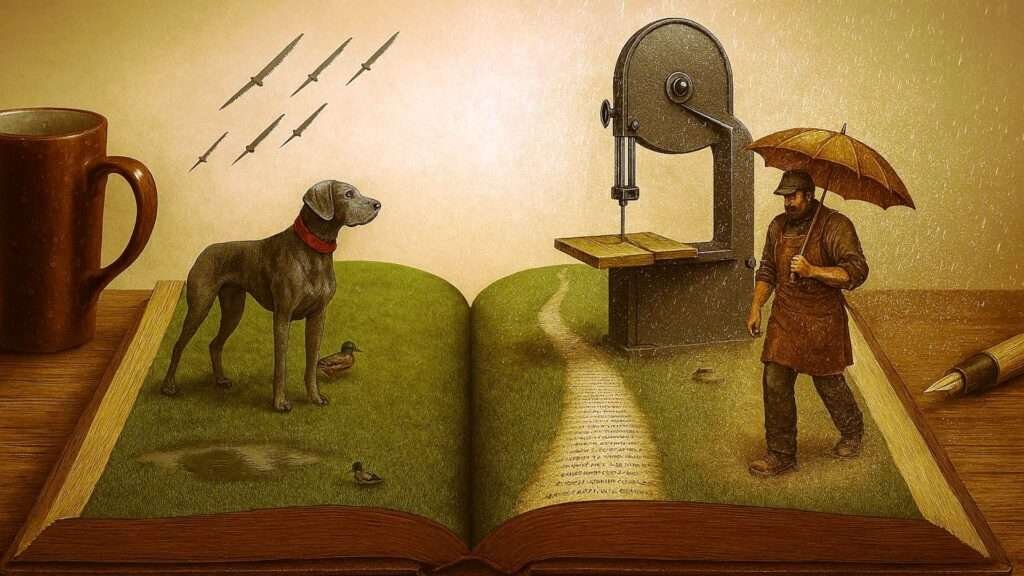
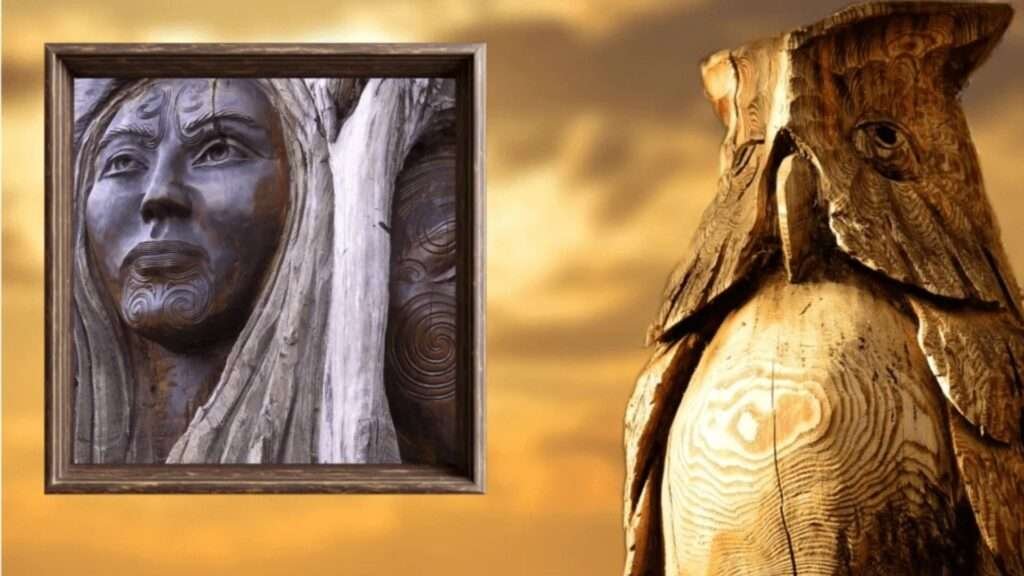
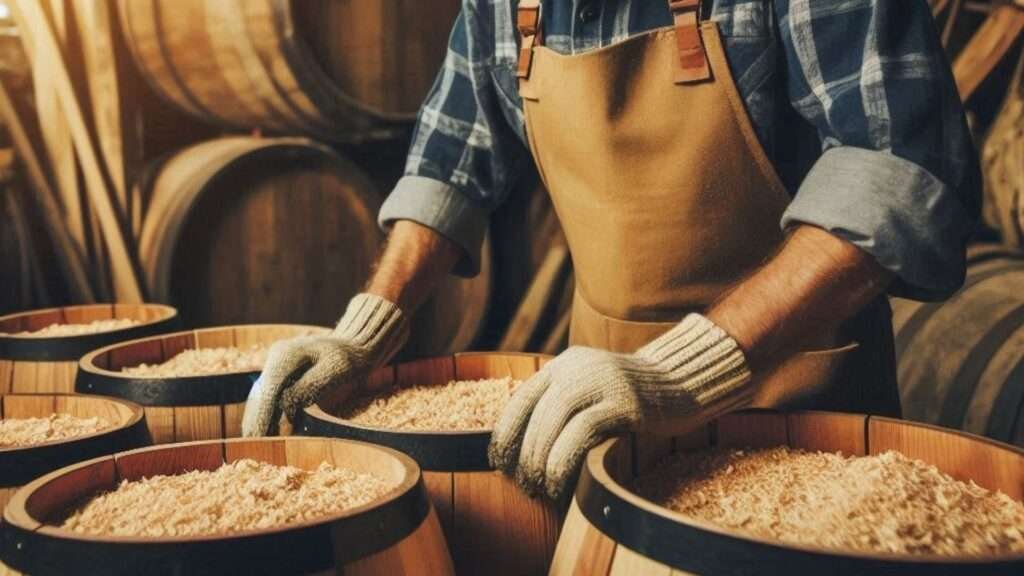
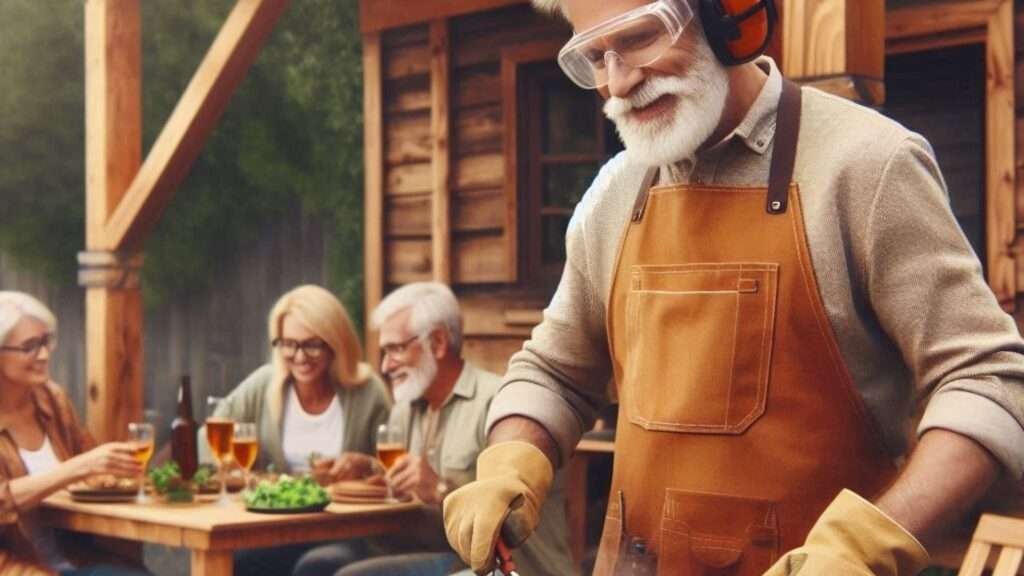
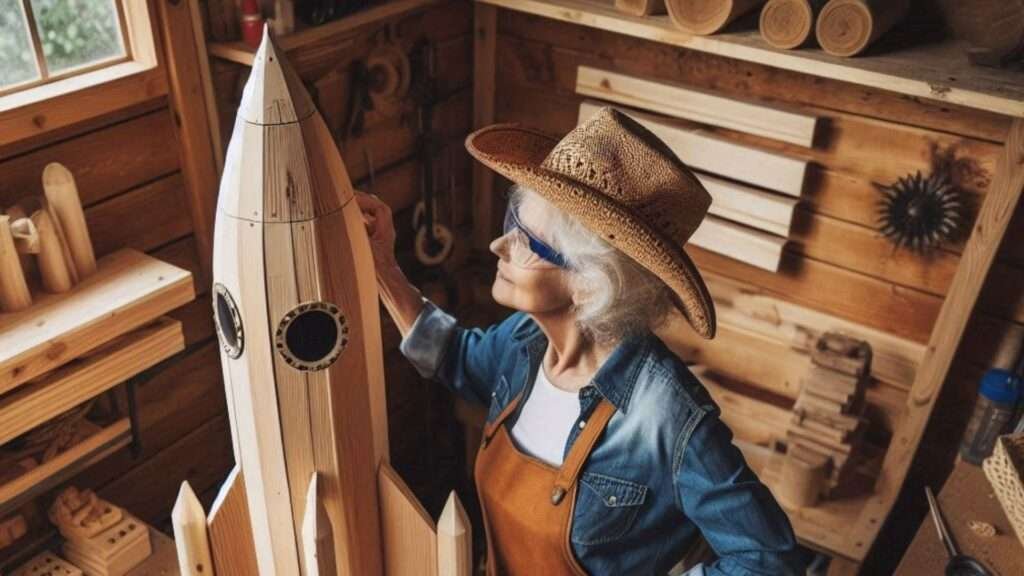


[…] https://www.glzwoodw.biz/whistling-woodshop/ […]